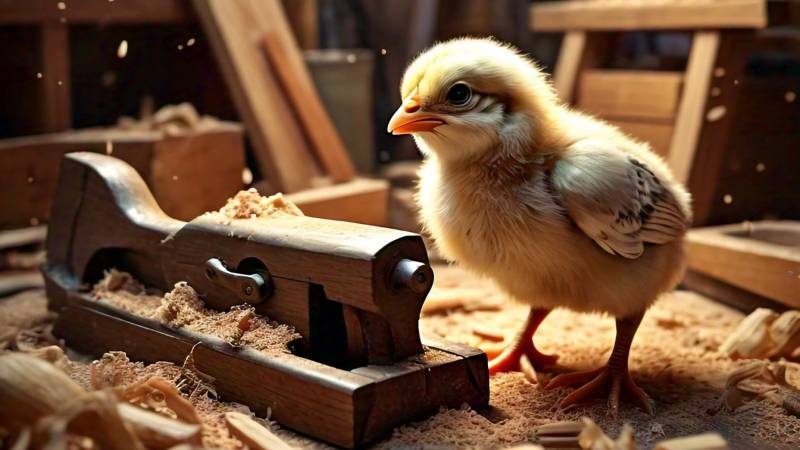A new study published in Frontiers in Ethology has revealed that male baby chickens engage in far more play than their female counterparts. This finding is particularly interesting given that domestic chickens are descendants of red jungle fowl, a species with pronounced differences between the sexes in morphology, coloration, and behavior. The research suggests that play may serve as practice for skills needed later in life, especially for males.
Observing Play Behaviors in Chicks
Researchers from Linköping University in Sweden incubated white leghorn eggs and determined the sex of each newborn chick based on wing length. The chicks were kept in cages with a sawdust floor, heat-roof, food, and water, and were transferred to larger ‘playpens’ twice per week for observation.
The scientists distinguished 12 distinct play behaviors, including locomotor play (frolicking and wing flapping), object play (chasing, pecking, or exchanging objects), and social play (sparring, jumping, and sparring stand-offs). They also introduced a fake rubber worm to stimulate ‘worm-running,’ a type of object play that may be the equivalent of ‘tidbitting,’ a courtship behavior exclusive to adult males.
“Here we show for the first time that there are clear sex differences in the age-related development of play in chickens,” said first author Rebecca Oscarsson, a PhD student at Linköping University. “This difference is mainly because males engage more in social and object play.”
Evolutionary Implications of Sex Differences in Play
The study found that while both females and males exhibited all types of playful behavior, the frequency of play differed between them. Male chicks played more overall than females, particularly engaging in more object and social play. The frequency of play also varied with age, peaking around 43 days for males and 36 days for females before gradually declining.
The researchers concluded that these sex differences in play frequency can be explained by the high degree of sexual dimorphism in adult junglefowl. Male chicks would likely benefit more from practicing various skills related to physical ability and social tactics, as they compete for territories as adults.
“We still don’t know the adaptive function of play for any species,” said author Dr Per Jensen, a professor at Linköping University and Oscarsson’s academic supervisor. “However, the present study indicates that a possible function is to prepare animals for specific challenges they may encounter later in life. In a species like the chicken, where only males compete for territories, it makes sense that they engage in more social play as young.”
The researchers plan to further investigate the neurobiological and genetic mechanisms of play, such as the potential link between early cerebellum development and play behavior.
Keyword/Phrase: Sex Differences in Chick Play Behavior


